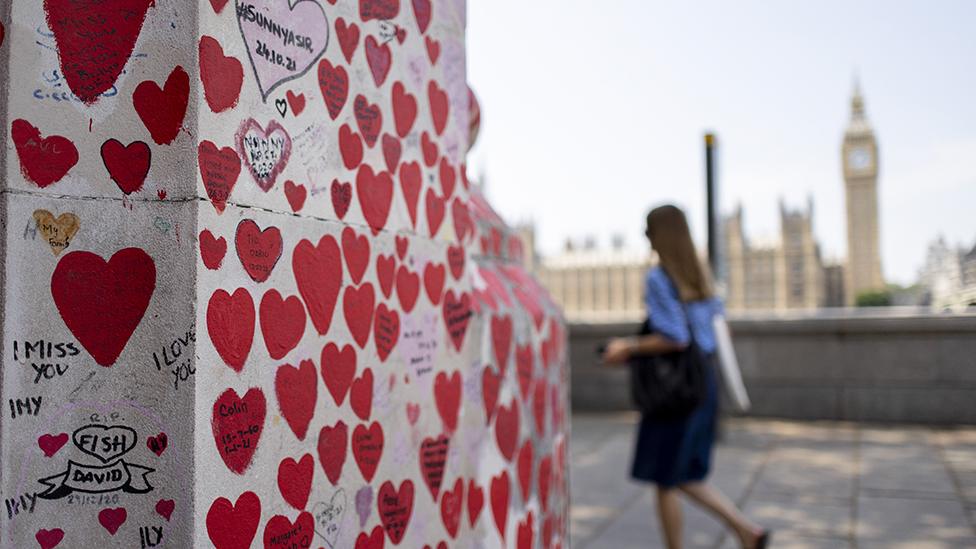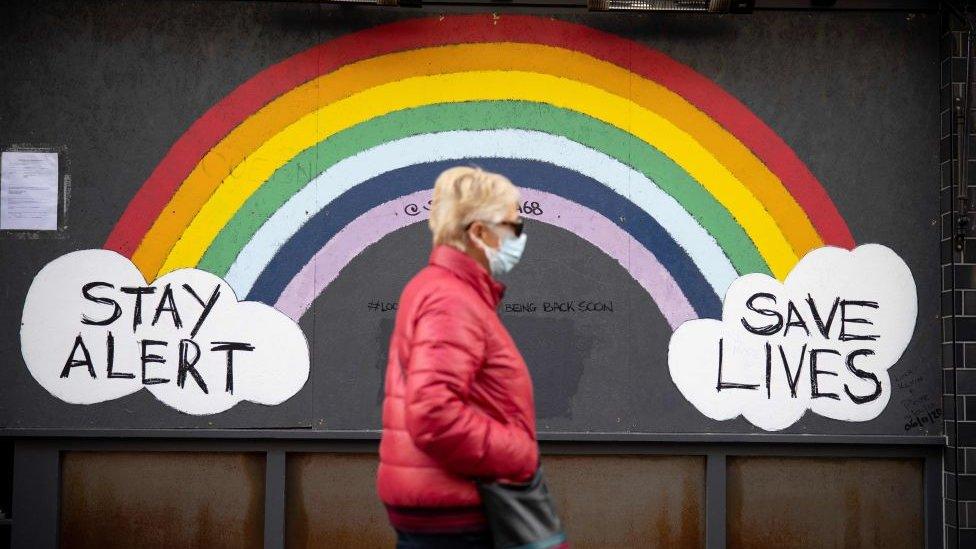Covid Inquiry: 'My daddy had no one with him when he died'
- Published
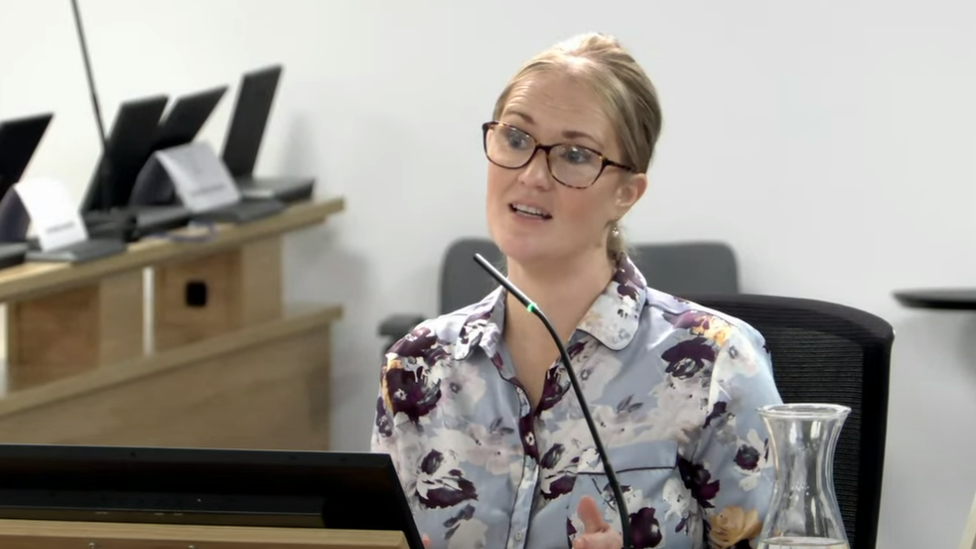
Catriona Myles
The daughter of a man who died alone in Antrim hospital during a Covid-19 lockdown has said restrictions meant his treatment was delayed.
Catriona Myles told the UK Covid-19 Inquiry her father died in Antrim Area Hospital in December 2020 with no family by his side.
She is a member of Northern Ireland Covid-19 Bereaved Families for Justice.
She also said bereaved families were left "disgusted" by revelations of Downing Street parties during lockdown.
The second stage of the public inquiry is examining key decisions made by the UK government between January 2020 and February 2022.
Mrs Myles's father, Gerry McLarnon, 67, a teacher and musician, died with Covid in hospital on 23 December 2020.
She told the inquiry her family believes Mr McLarnon could have been treated for a cancer diagnosis if he had received medical attention sooner.
However, he had difficulty securing medical appointments due to lockdown restrictions.
Mr McLarnon suffered from a gallstone condition which became necrotising pancreatitis.
"By the time we were locked down daddy had maybe a dozen to 15 attempts to get a face-to-face appointment with a GP. They all failed," she said.
"As a family we feel that the scaling back of GP face-to-face appointments led daddy down a path that, potentially, if he had gotten to see his GP it might not have ended up the way it ended up," she added.
"We were told daddy could be cured'
Mr McLarnon was later diagnosed with liver cancer.
She said: "Every time daddy needed to attend a hospital appointment he had to isolate for two weeks, get a Covid test at an acute hospital setting, wait for the results, wait for the appointment, attend the appointment whereby he had broken his isolation and then go home and wait another two weeks to be able to go back to get the results.
"When daddy was told he had a rare, aggressive liver cancer we didn't have many weeks to play with," she told the inquiry.
"At the outset we were told daddy could be cured but by the time he met his oncologist weeks and weeks had lapsed due to policy and protocol and procedure in the hospital system. Daddy was then deemed terminal."
The inquiry heard Mr McLarnon was taken to the ED department at Antrim Area hospital in November 2020.
Mrs Myles said: "My brother tells me he remembers daddy waving back at him with his little bag like a scared schoolboy."
"Daddy was in a ward with symptomatic patients," she told the inquiry.
She said her father was moved three times due to possible Covid exposure and he acquired the infection after nine days in hospital and was given end-of-life care.
Her brother was the only member of the family permitted to see their father in hospital.
"I did not see my father from the day he was told he was terminally ill - 27 November," she said.
"We were given the option that one family member could come and say goodbye through a tiny slit of glass in a six-bay ward where my father was... and the person would be wearing full hazmat protection."
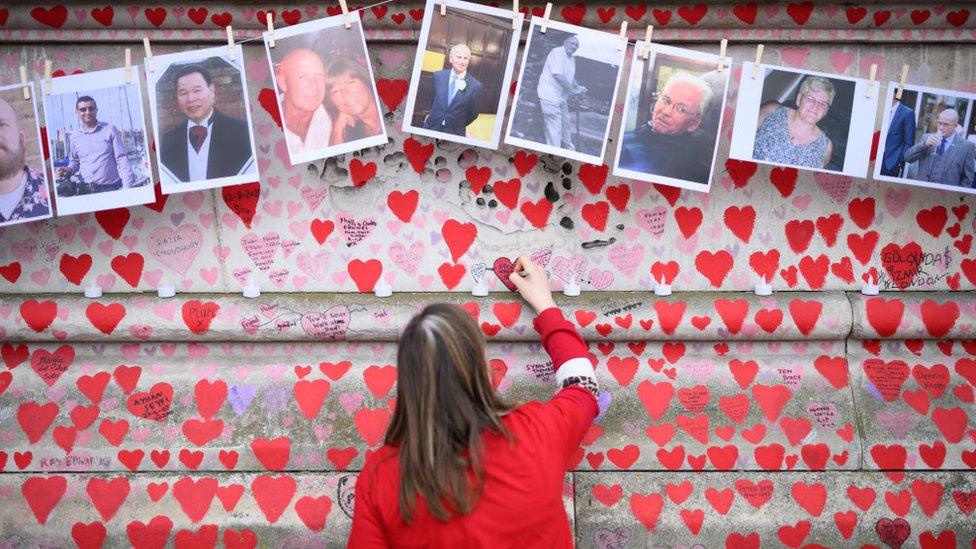
She said her brother had only arrived and was making sign language at her father when he was asked to leave as the man in the next bay needed to use the commode.
"My dad saluted my brother and that was the last anyone saw him," she said.
"Daddy had none of his family with him - he had no one with him - we don't know what time he expired - he was found dead on 23 December."
'Hold loved ones in hearts'
She said when she went to visit her father in the chapel of rest it was a "detached, surreal experience".
I remember thinking: 'That could be a bag of potatoes in that coffin' - how do I know what's in that coffin?'"
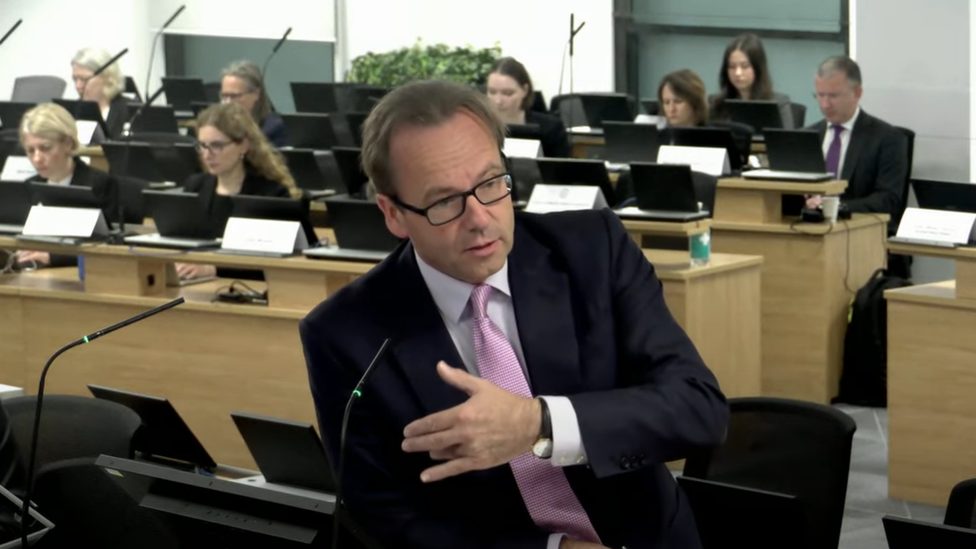
Lead counsel for the inquiry Hugo Keith KC
Lead counsel for the inquiry Hugo Keith KC asked Mrs Myles about the damage done to public confidence in government following revelations of the behaviour in Downing Street during lockdown.
"It is galling that the same people that were making these draconian rules thought: Rules for some, but we are above the rules and sure what they don't know will never hurt them'," she said
"We will have to try to live our lives, process our grief and hold our loved ones' memories in our hearts against the backdrop of the politics. When there is the likes of these parties going on, it just adds insult to injury for the bereaved families."
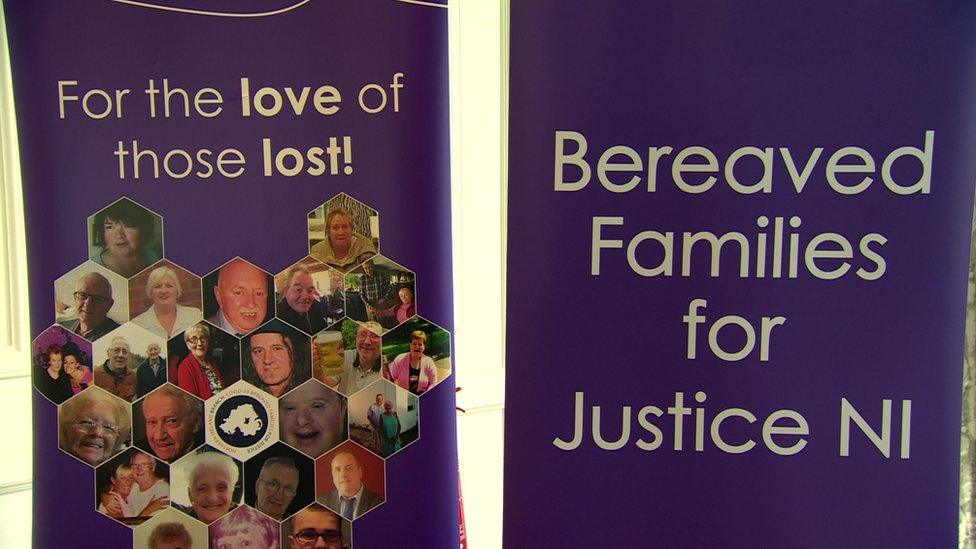
The bereaved families have been remembering their loved ones
The second round of Covid inquiry public hearings started on 3 October.
- Published30 September 2023
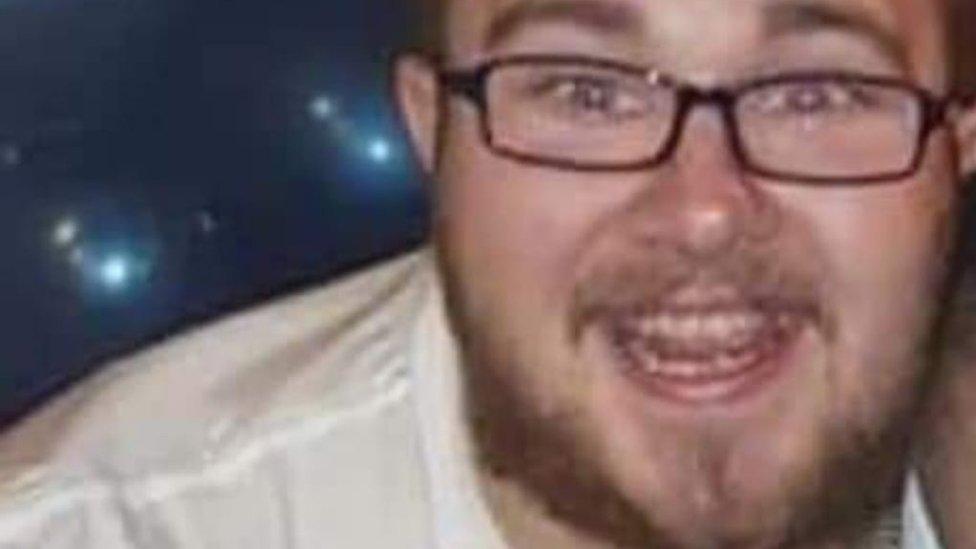
- Published20 July 2023
